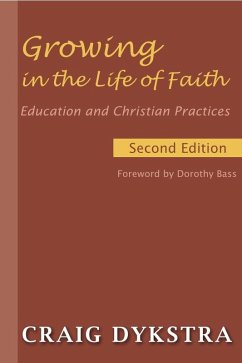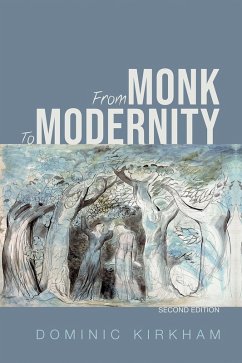
What Do Our Neighbors Believe? Second Edition (eBook, ePUB)
Questions and Answers on Judaism, Christianity, and Islam

PAYBACK Punkte
4 °P sammeln!
The current social and political climate makes it easy to benefit from religious misunderstanding. Political and religious leaders create fear of the religious other in order to drum up support for themselves. But the best way to combat deliberate misrepresentation is to provide accurate, timely information about the three great monotheistic religions: Judaism, Christianity, and Islam.Originally published in 2007, What Do Our Neighbors Believe? Second Edition organizes the three belief systems, asking the same questions of each: When and where did each originate? What are the sacred writings? ...
The current social and political climate makes it easy to benefit from religious misunderstanding. Political and religious leaders create fear of the religious other in order to drum up support for themselves. But the best way to combat deliberate misrepresentation is to provide accurate, timely information about the three great monotheistic religions: Judaism, Christianity, and Islam.
Originally published in 2007, What Do Our Neighbors Believe? Second Edition organizes the three belief systems, asking the same questions of each: When and where did each originate? What are the sacred writings? What kind of leaders does each have? What are their most essential beliefs? New sections explore current ethical questions and issues, including the deliberate use of misinformation about Islam to bolster power and generate fear and the recent rise in anti-Semitic hate crimes. By introducing the common aspects of Judaism, Christianity, and Islam, the authors make understanding their genuine differences and their many similarities much more possible.
Originally published in 2007, What Do Our Neighbors Believe? Second Edition organizes the three belief systems, asking the same questions of each: When and where did each originate? What are the sacred writings? What kind of leaders does each have? What are their most essential beliefs? New sections explore current ethical questions and issues, including the deliberate use of misinformation about Islam to bolster power and generate fear and the recent rise in anti-Semitic hate crimes. By introducing the common aspects of Judaism, Christianity, and Islam, the authors make understanding their genuine differences and their many similarities much more possible.
Dieser Download kann aus rechtlichen Gründen nur mit Rechnungsadresse in A, D ausgeliefert werden.













